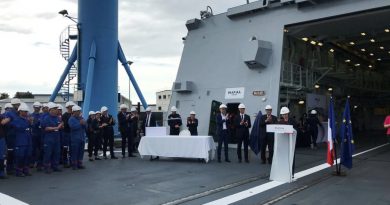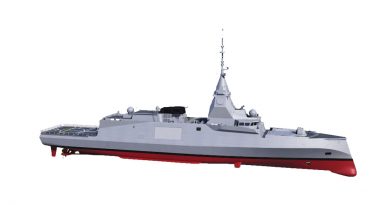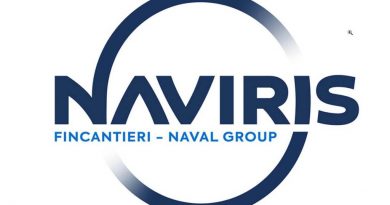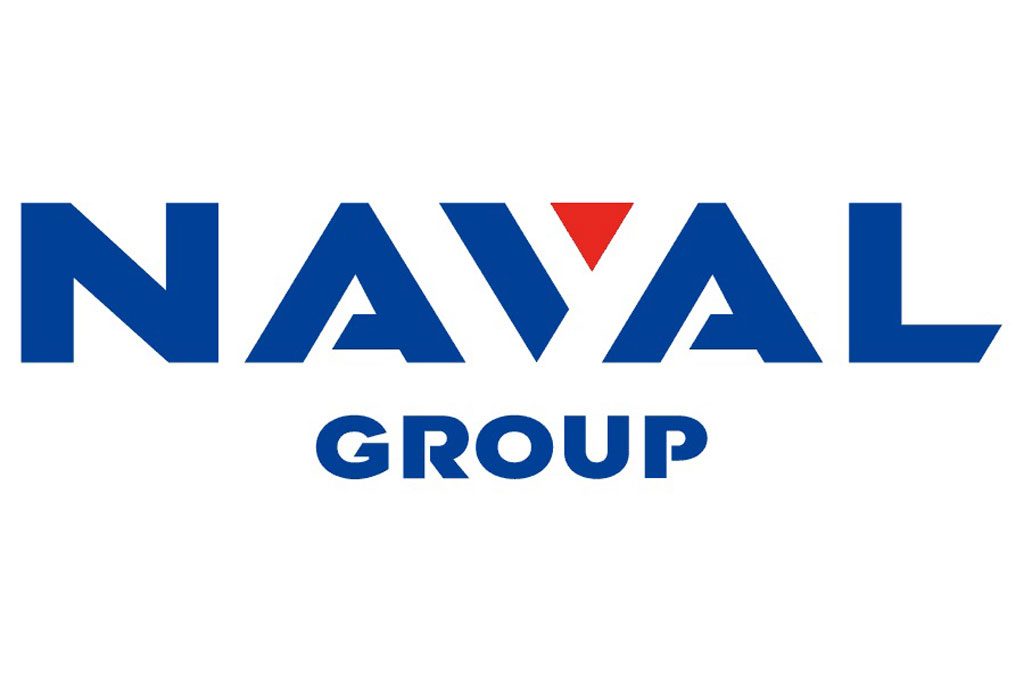
Pierre-Eric Pommellet, CEO of Naval Group, talks to EDR On-Line
By Joseph Roukoz and Luca Peruzzi

A graduate of the Ecole Polytechnique, Sup Aero and a Master of Science from MIT, Pierre-Eric Pommellet began his career at the French Procurement Agency (DGA) as an armaments engineer, then at DCN (later DCNS and now Naval Group) before becoming Chief of Staff of Jean-Pierre Raffarin, then Minister of SMEs, Trade and Crafts from 1995 to 1997. Pierre Eric Pommellet then joined Thales where he held the position of Executive Vice President, Operations & Performance in charge of all military equipment activity of the aeronautics division before becoming the Managing Director.
Pierre Eric Pommellet was appointed in March 2020 as Chief Executive Officer of Naval Group to succeed Hervé Guillou.
Mr. Pommellet, you took up your duties in the midst of Covid-19. Did your integration into the groups goes well and did you found your marks easily after the mandate of Hervé Guillou?
Even after only a few months, I can say that I am proud to have joined Naval Group, an incredible company, one of the jewels of French industry. The diversity and mastery of skills are exceptional, as is the commitment of each of its employees, in France but also in our subsidiaries overseas. It is fantastic to work with people who are so proud, with reason, but also passionate about what they do.
Naval Group was no unknown territory. I began my career in 1990 working on navigation systems for Le Triomphant-class nuclear-powered ballistic missile submarines (SSBN). After that, while working for Thales, I was also in charge of naval subjects in links to Naval Group. Therefore, even though it had been a long time since I had been with the company, it still made the transition easier, especially in the context of the Coronavirus.
As for all companies, we had never faced such a sanitary crisis. Taking the helm of the group in this difficult period was challenging, but also an opportunity to see how amazing the people in the group are and to be a part of the collective reflection to adapt our ways of working.
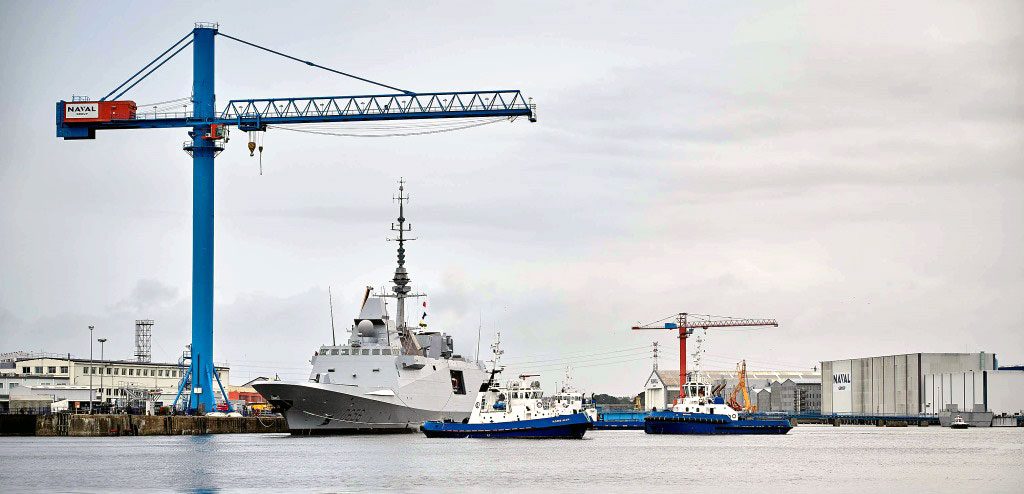
After five months at the helm of the company can you tell us which are the main points and objectives that you have chosen to lead the group during your mandate?
It is too early to talk about a new strategy at this stage but I can say that we will ensure continuity on strategic issues such as commercial development and focus on delivering the highest quality to our customers.
Today, Naval Group is a key player of naval defence. I want to make sure that we stay on top, this is why Naval Group will continue to invest heavily in R&D to deliver customer-centric technology that will enable navies to anticipate and address new threats.
Our people and their expertise are also key to our operations and our success. Ensuring this collective knowledge is passed from one generation to another is paramount to our sustainability. Recruitment and engaging youth to ensure we preserve and grow this collective knowledge and naval skills, in France but also in our other countries, is something I am very attached to.
Despite the health crisis, Naval Group’s activities continued. Which were your priorities?
Our main focus throughout the crisis has been to be able to keep on carrying out our essential missions so that our clients and partners could pursue theirs. Naval Group’s purpose is to serve navies around the world, of course the French Navy in particular. It is reflected at its strongest at times like this.
Thanks to the commitment of the teams and to our operational excellence, we were able to pursue key activities such as ships maintenance and meet important programs milestones.
For example, the deterrence posture has been maintained and the nuclear submarine Le Téméraire successfully passed her acceptance test on June 12. I could also mention the OPV programme for Argentina, since we were able to deliver the 2nd ship in early October, two months ahead of schedule.
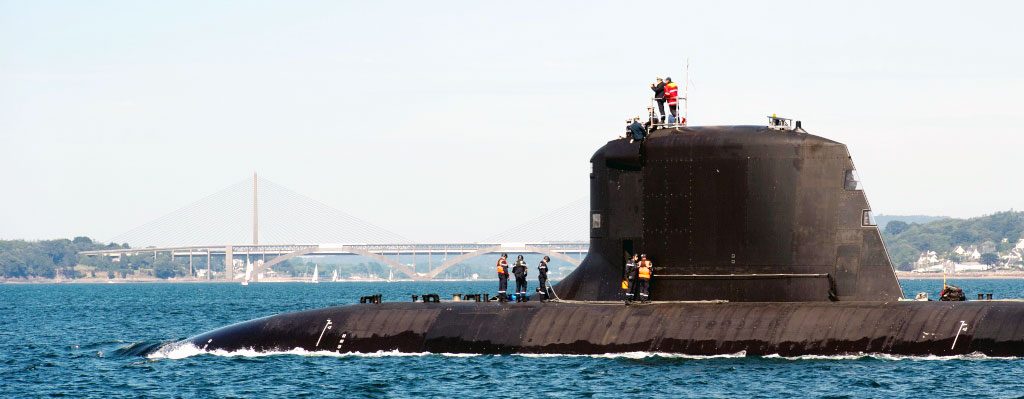
How is Naval Group advancing with the French Navy’s Barracuda nuclear submarine programme as well as with the Australian design and production programme for the new Attack class of conventional submarine and preparing itself for the French Navy’s new generation SSBN programme ?
Barracuda and AFS are two major programmes for Naval Group. The Suffren, first of the Barracuda-class started her sea trials on April 26 and has been transferred to Toulon on July 29 for her combat system trials and will be delivered at the end of the year. Five additional SSN of the same class are to be added to the French nuclear arsenal: the Duguay-Trouin, Tourville, De Grasse, Rubis and Casabianca. They are currently under construction. The last part of the second Barracuda submarine is being assembled in Cherbourg. The Suffren is one of the world’s stealthiest submarines. This discretion, combined with her advanced detection capabilities provided by Thales, guarantees her acoustic superiority. Furthermore, for the first time, thanks to the Suffren-class submarines, the French Navy will have a deep strike capability with MBDA’s naval cruise missiles (NCM).
Since the beginning of the sanitary crisis, Naval Group, both in France and Australia, has taken all the measures necessary to mitigate its impact on the Australian Future Submarine programme. Despite the travel restrictions which are forcing us to adapt the way we work, we continue to reach important programme milestones such as the Intermediate Design Review in last April and we are now heading towards the next operational milestone, the System Functional Review in January 2021. So far, thanks to our collective efforts, we managed to maintain the programme on track on the short term. We are currently assessing together with the Commonwealth what could be the potential impacts of the COVID-19 on the long term, if the sanitary crisis remains as critical as it is today.
As for the French Navy’s 3G SSBN programme we are still awaiting the government decision.
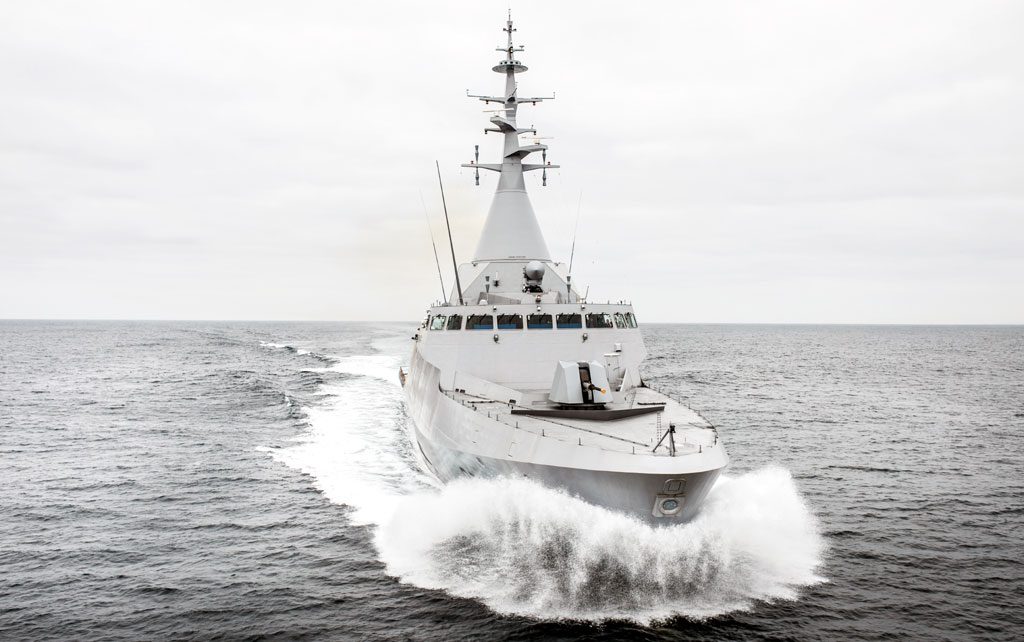
How is Naval Group positioning on the international market in the underwater domain and where the company is looking for new manned and unmanned developments in the sector?
Naval Group is a major player in underwater systems. We have developed for both the French Navy and the Marinha do Brasil, the F21 which is a very efficient heavyweight torpedo benefiting from a safer and smarter system that allows the weapon to go further with an energy density twice superior compared to its counterparts on the market.
As for unmanned systems, we have created the D19, an autonomous multirole underwater vehicle which resembles a torpedo but which is able to fulfill a wider range of missions such as intelligence gathering, surveillance or target missions.
Forces around the world are looking into acquiring all kind of unmanned vehicles as they offer new opportunities in addition to traditional vessels. To maximize the use of drones, integration is paramount. Naval Group integrates all types of drones – air, surface and underwater – to increase the operational capabilities of an armed fleet. These innovative assets are crucial force multipliers provided that they are seamlessly integrated into the ships. Our innovative solutions encompass drones launch and recover under any sea conditions, the management of multi-drone missions and the real time broadcast of the information through the combat management system, which significantly develops the contribution of drones to naval forces.
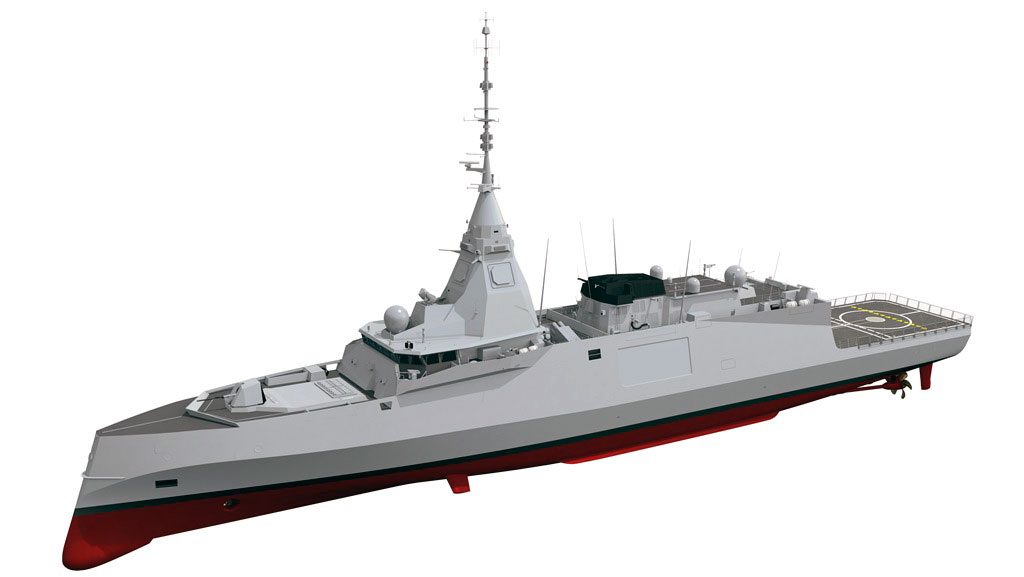
Naval Group is involved in important programmes in the surface vessel shipbuilding domain, including the Belharra light frigate and the Gowind corvettes for the export market, as well as looking and leading into the development of national naval programmes, such as the new aircraft carrier. How Naval Group is positioning at worldwide level and which is the contribution of the new French-Italian Naviris joint-venture with Fincantieri in these development plans?
Naval Group is a key player in the sector of naval defence. We already have footprint in 18 countries and are looking forward to developing new partnerships with other countries.
Belharra is the new digital combat ship for naval supremacy and crisis management designed for navies looking for a compact frigate able to perform a large range of missions either stand-alone or within a task force. The French version of Belharra, the FDI – Defence and Intervention Frigates, are being developed in Lorient. The first steel cutting ceremony took place one year ago and the programme is on track. The first FDI is planned to be delivered in 2023.
As for the aircraft carrier, we are waiting for a decision. Under a DGA contract, Naval Group is currently conducting with its partners Chantiers de l’Atlantique and Technicatome preliminary studies related to a new-generation aircraft carrier. These studies shall provide the French government with the necessary information to take informed decisions.
The Gowind is a real success story for the group, thanks to its outstanding capabilities but also to the industrial process that is fully mastered with a FOC built in Lorient in 36 months or successful transfers of production and technology to Egypt. This design developed by Naval Group to address the segment of corvettes and light frigates has already been chosen by four navies and is sea proven with the Egyptian navy.
Regarding Naviris, our joint-venture with Fincantieri, we want to join the forces of the mother companies to better serve our partner navies. Naviris has signed its first contract regarding R&T with OCCAR, the European Joint Armaments Cooperation organisation in June 2020. This R&T programme of Naviris encompasses five different projects all aiming at enhancing the performance of Fincantieri’s and Naval Group’s vessels. The R&D efforts will focus on five key areas: digital ship, energy consumption optimization, fuel cells for surface vessels, production efficiency and gaining a sea state. Last July, Naviris has been awarded a contract from OCCAR to study the mid-life upgrade of the four Horizon frigates operated by the French and Italian navies.
Thank you Mr. Pommellet for your answers do you have anything else to add?
Yes, maybe a message towards our young generations: we need you and we have huge opportunities to develop sovereignty for our countries, fantastic jobs and opportunities over the long term!
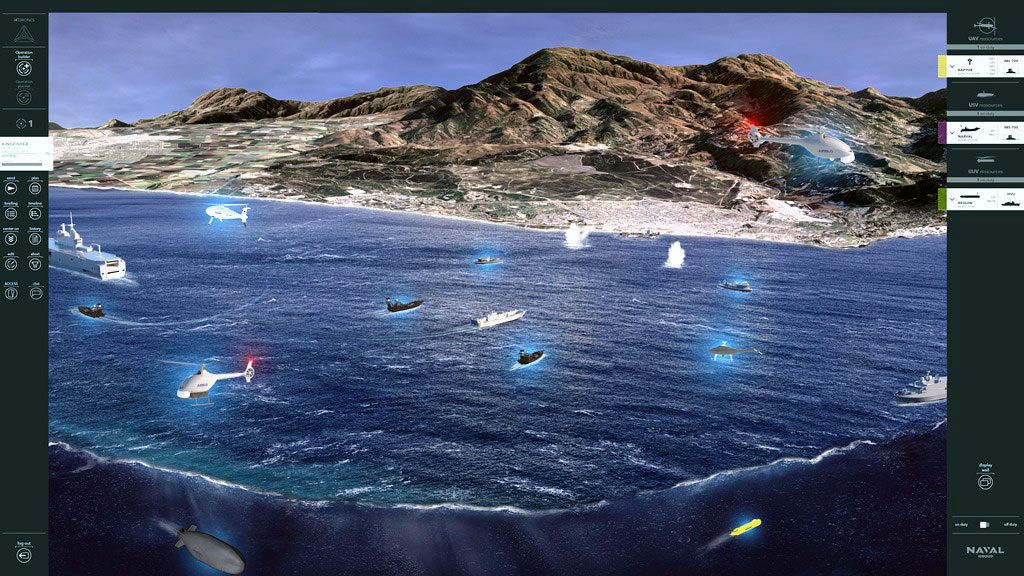
Photos courtesy Naval Group

